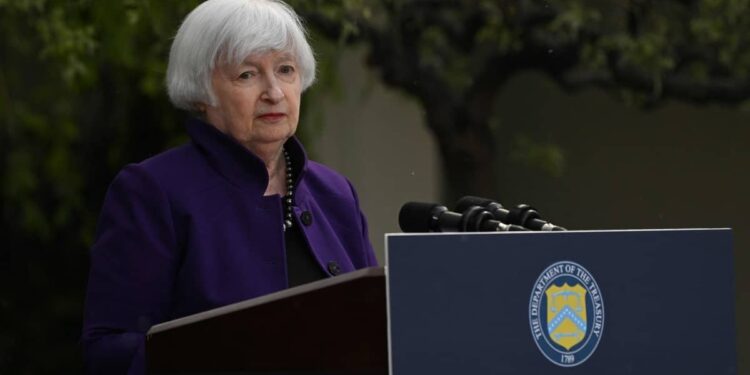Washington “will not accept” the flood of Chinese products sold at a loss on the world market, as has already happened in the past, said American Treasury Secretary Janet Yellen on Monday, traveling to China.
• Read also: The United States worried about Chinese overproduction
• Read also: Between China and the United States, economic and commercial tensions at all levels
Citing the example of steel, more than a decade ago, whose Chinese influx “decimated industries across the world and in the United States,” Ms. Yellen declared to the press: “I don’t I will not accept this reality again.
“I know that these serious concerns are shared by our allies and partners, both developed and developing economies,” she added.
For their part, the United States will not take “surprise” economic measures in terms of national security, assured Ms. Yellen, who raised the subject with Chinese officials.
“While the United States must continually evaluate its national security measures, given the rapid pace of technological developments, we are committed not to take surprise measures,” she declared, also calling on China to “ transparency” in this area.
China’s production “overcapacity” was at the heart of Ms. Yellen’s move. The Minister of Finance arrived in Canton (south) on Thursday and is due to leave Beijing on Tuesday morning.
The United States fears that massive subsidies from the Chinese government in technologies, green energy, electric vehicles and even batteries, will lead to a tidal wave of low-cost products around the world that would endanger foreign competitors in these sectors.
Janet Yellen was received on Sunday by Chinese Prime Minister Li Qiang and both showed their desire to strengthen dialogue, despite the differences between the world’s two leading economic powers.
Beijing has so far brushed aside concerns about its strong support for its industries.
“The accusations of “overcapacity” by the United States and Europe are unfounded,” Minister Wang Wentao declared on Sunday, traveling to Paris, according to the state agency New China.
In particular, the rapid growth of Chinese electric vehicle makers is due to innovation and supply chains, not Chinese state subsidies, he assured.



